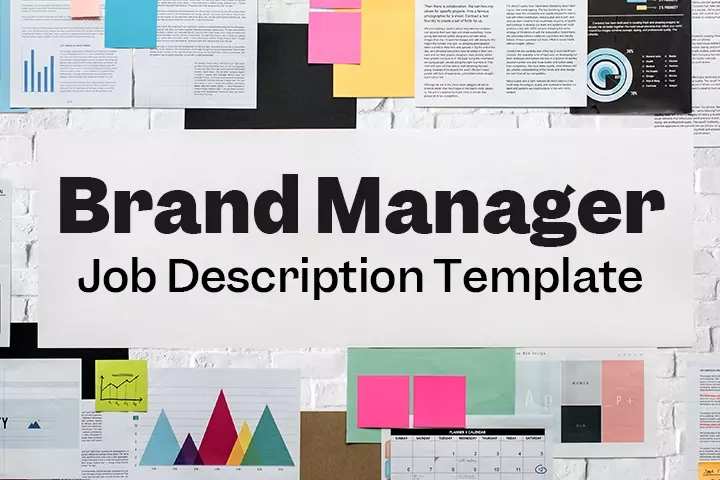The UAE's Ministry of Labor (MOL) oversees company functions and ensures compliance with UAE labor laws and regulations. As part of this responsibility, the MOL conducts periodic inspections of companies through its team of labor inspectors.
This guide will cover everything you need to know about preparing for labor inspections in the UAE. A thorough understanding of the inspection process ensures your company passes any labor inspection without issues.
{{hi-link="/sandbox/home-v3"}}
Overview of Labor Law in the UAE
The UAE recently enacted a revised labor law - Federal Law No. 33 of 2021, which replaces Federal Law No. 8 of 1980. This new law comes into force on February 2, 2022, introducing several changes to protect employee rights and enhance the country's competitive edge in attracting talent.
Key changes in the new labor law
- Increased annual leave
- Introduction of paternity leave
- Limiting the maximum probation period to 6 months
- Restricting unlimited employment contracts
- Updated anti-discrimination provisions
- Addressing workplace bullying and harassment
The law aims to provide more flexibility and progressiveness in addressing evolving market needs while balancing employee welfare.
What is the Meaning of Labor Inspector?
A labor inspector is an official appointed by the Ministry of Human Resources and Emiratization (MOHRE) to monitor compliance with employment laws in private companies.
Inspectors take an oath to respect the law, perform their duties honestly, and maintain confidentiality of commercial information. They undergo extensive training to understand labor regulations and inspection procedures.
Certified inspectors are provided with formal identification from MOHRE authorizing them to conduct workplace visits. Their primary aim is to safeguard the rights and welfare of employees in the private sector.
What Can Labor Inspectors Do?
Labor inspectors in the UAE derive their authority from Federal Law No. 33. The law empowers them to gather information and enforce regulations across private establishments to fulfill their duties.
- They Have the Right of Entry
Inspectors can enter work premises anytime during work hours without prior notice. They only need to inform the employer or manager when they arrive.
- They Can Examine Records
Inspectors review registers, files, or documents related to the company's operations and employees. They can take copies or extracts from these records.
- They Can Interview Employees
Inspectors can question employers, managers, or employees privately or in the presence of witnesses. The aim is to investigate compliance issues.
- They Can Take Samples
Inspectors are allowed to take samples of materials used in industrial processes. These can be analyzed in accredited labs to check for health and safety hazards.
- They Can Demand Improvements
If inspectors notice deficiencies in equipment, layouts, or work methods, they can instruct employers to implement corrective actions within a reasonable timeframe.
What Happens During and After an Inspection?
Inspections usually occur during operating hours when staff are present so inspectors can interview employees and observe operations. Inspectors have the right under the labor law to access all premises, systems, and documents as necessary to carry out their responsibilities.
Interference or obstruction witnessed can result in penalties against the company as it hinders inspectors from accurately assessing compliance.
When a labor inspection is scheduled for a company, here is an overview of the typical process:
Pre-Inspection
- The company is notified of upcoming inspections in advance
- Details are provided on inspectors visiting and focus areas
- The company has a chance to self-audit and prepare
During Inspection
- Inspectors enter the premises and introduce themselves
- They examine work areas, contracts, postings, policies, etc.
- Interviews are conducted with random employees
- Samples or photographs may be taken for reporting
- Company representatives need to coordinate and assist
Post-Inspection
- The company is notified of any violations observed
- Supporting photos, documents, and interview notes attached
- The labor department follows up on violations with penalties
- A company can appeal disputed violations within the timeframe
It’s important to know that industries categorized as high risk, such as construction, can undergo surprise inspections without prior notice to gauge real working conditions accurately. However, overall, the inspection aims to be fair and open.
Companies that adhere to all regulations in the labor law typically have minimal concerns regarding labor inspections. Being cooperative, answering all queries honestly, and maintaining detailed documentation help organizations smoothly undergo any labor department inspection when scheduled.
How Can Companies Prepare for an Inspection?
When you receive advance notice of an upcoming MOL inspection, there are several preparatory steps your company can undertake to ensure readiness. These steps will help companies avoid being unaware of an inspection and resolve unintentional violations.
Review Regulations
- Revisit labor law and updates to ensure full compliance
- Check your employee contracts, policies, postings, etc. align
- Update any clauses that contradict the latest rules
Self-Audit
- Critically evaluate premises and operations for violations
- Interview employees to check compensation, treatment, etc.
- Identify and resolve any areas that break regulations
Organize Documents
- Maintain updated records on employees, contracts, attendance, salaries, etc.
- Keep documents related to licenses, health cards, insurance, etc.
- Create folders/database for easy access during inspection
Educate Team
- Inform all employees about inspection and expected process
- Train staff interacting with inspectors to be cooperative, respectful
- Ensure everyone understands their rights and responsibilities
Designate Point Person
- Assign an employee well-versed in regulations as the point person
- They should coordinate activities during the inspection
- Any queries by inspectors can be routed through them
9 Tips for Smoothly Undergoing an Inspection
Here are some additional tips for undergoing a labor inspection:
1. Don’t attempt to bribe or influence inspectors
2. Accompany inspectors at all times during premises tours
3. Openly share documents, data, and registers when asked
4. Honestly answer employee interview questions by inspectors
5. If unsure about a rule, politely seek clarification
6. Request inspectors to explain the policy behind any observed violation
7. See inspection as an opportunity to improve compliance
8. Maintain detailed records of the entire inspection visit
9. Stay calm and cooperative with inspectors throughout
Conclusion
The Ministry of Labor considers ongoing labor inspections across UAE companies as a critical mechanism to safeguard employee rights and enhance the country’s reputation globally.
As an employer, understanding the inspection process and the role of labor inspectors, preparing your company in advance, and cooperating smoothly during the inspection can eliminate unwelcome surprises or penalties.
By knowing the regulations and regularly self-auditing for compliance, your company can confidently undergo labor inspections whenever they are conducted. Maintaining open communication and trust between employers and staff is also key to smoothly passing any inspection.




